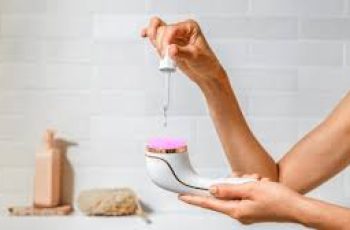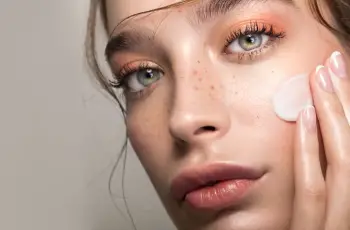
How to Tweak Your Skin-Care Routine for Summer, Depending on Your Skin Type
Summer’s heat, humidity, and sun exposure can introduce new challenges for your skin, so tweaking your routine based on your skin type can help you maintain a healthy, glowing complexion.
While some core products like retinol and antioxidants should remain in your regimen year-round, summer demands extra attention to issues like hyperpigmentation, acne, and increased oiliness.
Dr. Deirdre Hooper, a dermatologist from Audubon Dermatology, emphasizes continuing antioxidant and retinol use, improving sun protection, and adjusting your cleanser and moisturizer if needed.
If your skin becomes oilier or more acne-prone in the summer, you may need to adapt your cleanser or add antibacterial ingredients to your routine to prevent breakouts and clogged pores.
If Your Body Is Acne-Prone: Use an Antibacterial Wash
Summer sweat doesn’t cause acne directly, but it creates an environment where acne-causing bacteria thrive, especially on the back, butt, and thighs.
Dr. Hooper recommends antibacterial washes containing benzoyl peroxide, such as CLn BodyWash, to control bacterial overgrowth and reduce full-body breakouts.
Hypochlorous acid, a diluted bleach with antibacterial, antifungal, and antiviral properties, is another gentle option that’s shown benefits for acne and other inflammatory skin conditions.
Use these products consistently for at least four weeks to determine whether your skin is responding positively before making further changes.
If Your Skin Is Oily: Switch to a Salicylic Acid Cleanser
Oily skin often produces more sebum in warm weather, leading to blackheads and clogged pores, especially in the T-zone area like the nose, chin, and forehead.
To counteract this, use a facial wash with glycolic and salicylic acids, such as SkinCeuticals LHA Cleansing Gel, which exfoliates and clears excess oil.
Glycolic acid removes dead surface cells, while salicylic acid penetrates oily pores, helping to prevent blemishes from forming beneath the skin.
Look for formulas with hydrating ingredients like glycerin, which acts as a humectant to draw and retain moisture while still managing oil.
If you’re using a creamy cleanser, consider switching to a gel or foaming version, which is typically more effective for oily or breakout-prone skin types in the summer.
If Your Skin Is Dry: Consider a Lighter Moisturizer
Humidity increases in summer can help hydrate dry skin naturally, so you might find your usual rich moisturizer feels too heavy during warmer months.
Consider switching to lighter moisturizers containing hyaluronic acid, such as Neutrogena Hydro Boost Gel-Cream, which provides hydration without heaviness.
Clear or gel moisturizers tend to be more water-based and less occlusive than thick white creams, which are heavier and better suited to dry, winter conditions.
Even if your skin feels more hydrated in summer, moisturizing remains important to maintain your skin barrier and prevent flakiness or irritation.
If Your Skin Is Combination: Use a Toner for Targeted Treatment
Combination skin typically features dryness on the cheeks and oiliness in the T-zone, making summer skincare a balancing act.
Dr. Angela Lamb suggests treating each area separately, applying richer products to dry areas and oil-controlling products like toner to the T-zone.
While toners aren’t always necessary, they can be helpful in summer for oily areas—choose one that mattifies, hydrates lightly, or clears pores without over-drying.
Avoid using toner across the entire face if your cheeks are sensitive or dry, and consider rotating products depending on your skin’s daily condition.
All Skin Types: Use Sunscreen and Reevaluate Your Cleanser and Moisturizer
Regardless of your skin type, sunscreen is non-negotiable in summer; choose a broad-spectrum SPF 30+ with zinc oxide for full protection against UVA and UVB rays.
Zinc oxide is not only an excellent UV filter, but it’s also soothing, making it ideal for sensitive or breakout-prone skin types.
Mineral sunscreens like Drunk Elephant Umbra Sheer Physical Daily Defense are gentle, effective, and less likely to clog pores or irritate the skin.
Look for noncomedogenic sunscreens to avoid breakouts, and reapply every two hours, especially if sweating or spending extended time outdoors.
Clothing and shade are also crucial—wear protective clothing, avoid peak sun hours (10 a.m. to 4 p.m.), and complement sunscreen use with wide-brimmed hats and sunglasses.
Rosacea sufferers should be especially cautious, as sun exposure can worsen flare-ups; mineral sunscreens tend to be gentler and more effective for sensitive skin.
Summer may also be a good time to switch to a lighter moisturizer and a gentler cleanser, though changes aren’t necessary unless your skin feels different than in cooler seasons.
If your skin feels dry one day, apply moisturizer; if it feels greasy, skip it—that level of flexibility can help maintain skin health without overloading it.
Be mindful of small white bumps called milia, which can be signs that your skincare products are too heavy; switch to lighter formulas with fewer occlusive ingredients.
To Address Wrinkles: Use a Retinoid Year-Round
Retinoids increase collagen production, reduce wrinkles, and improve skin texture, making them a year-round essential—even in the summer.
Though they can increase sun sensitivity, using retinoids at night and wearing sunscreen during the day mitigates this risk effectively.
Increased summer humidity can even make retinoids easier to tolerate by minimizing the dryness and flakiness they sometimes cause in drier seasons.
Choose retinoid products with built-in moisturizers, such as No7 Protect & Perfect Intense Advanced Serum, which also contains hyaluronic acid and antioxidants.
Always introduce retinoids gradually and avoid combining them with other strong actives like AHAs, salicylic acid, or benzoyl peroxide to prevent irritation.
Perform patch tests before introducing new products, and consult your dermatologist before making significant changes to your routine.
If You Have Melasma: Prevent and Lighten Pigmentation With Antioxidants
UV and visible light worsen melasma, a common pigment issue that appears as brown patches on the cheeks, forehead, and upper lip.
Apply vitamin C or antioxidant serums in the morning to combat free radicals and reduce pigmentation—this step is particularly helpful for melasma-prone skin.
Hydroquinone is the gold standard for melasma treatment, but it should only be used short-term and under the guidance of a dermatologist to avoid adverse effects.
If you prefer to avoid hydroquinone, tranexamic acid is a gentler alternative supported by clinical research, and it’s found in products like SkinCeuticals Discoloration Defense.
Infrared heat—not just UV—can worsen melasma, so avoid overheating by using air conditioning, steering clear of metal sunglasses, and staying cool.
Consider oral supplements like Heliocare Ultra, which contains antioxidants from a fern extract and may help protect skin from UV damage alongside sunscreen.
A multi-pronged approach is key: Use antioxidant serums, wear broad-spectrum sunscreen, avoid excessive heat, and consider oral supplements as part of a complete melasma routine.
By tuning into your skin’s needs and making small seasonal tweaks, you can protect and improve your skin throughout the summer without overcomplicating your regimen.


